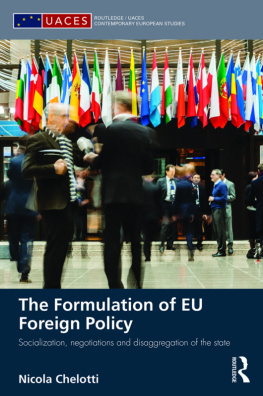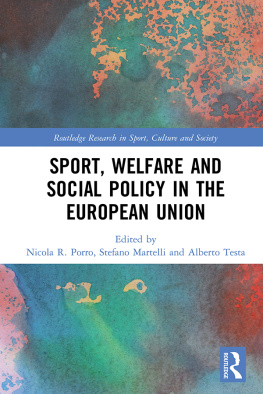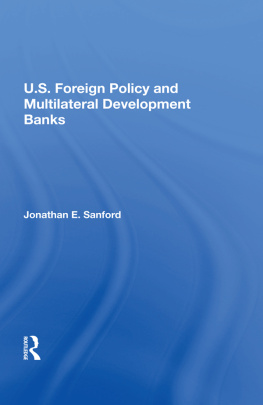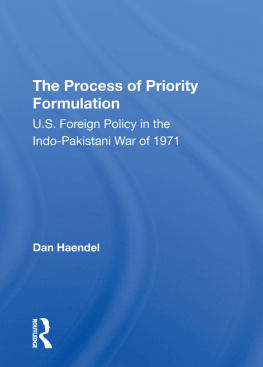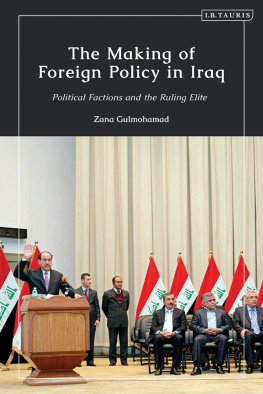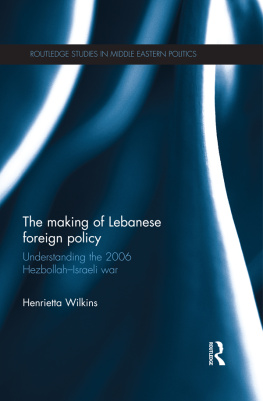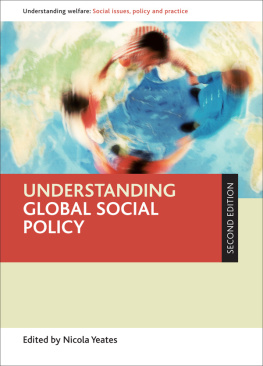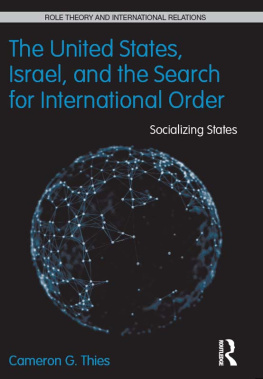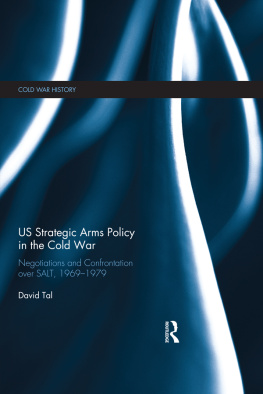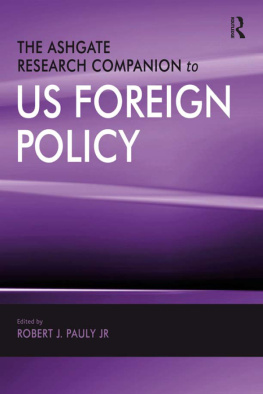The Formulation of EU Foreign Policy
EU foreign and defence policy is largely formulated in the working parties and committees of the Council of the EU and the vast majority of decisions in this field are made by the national diplomats working in the around 35 groups of the CFSP/CSDP.
Although the importance of these committees and their participants has been increasingly recognised, we still know relatively little about them. Using an original database of 138 questionnaires and 37 interviews, this book addresses this lack of knowledge, studying what these committees do and how they negotiate and resolve issues. It explores three key areas:
- the formulation of the national position;
- the identity of CFSP/CSDP policy-makers; and
- negotiation practices and outputs.
In doing so, it provides an innovative observation point from which EU foreign policy can be analysed.
This book will be of key interest to scholars and students of EU foreign and defence policy, external relations of the EU, European integration and politics, diplomacy and more broadly international relations.
Nicola Chelotti is LSE Fellow in the Department of International Relations at the London School of Economics and Political Science, UK.
Routledge/UACES Contemporary European Studies
Edited by Federica Bicchi, London School of Economics and Political Science, Tanja Brzel, Free University of Berlin, and Mark Pollack, Temple University, on behalf of the University Association for Contemporary European Studies
Editorial Board: Grainne De Brca, European University Institute and Columbia University; Andreas Fllesdal, Norwegian Centre for Human Rights, University of Oslo; Peter Holmes, University of Sussex; Liesbet Hooghe, University of North Car-olina at Chapel Hill, and Vrije Universiteit Amsterdam; David Phinnemore, Queens University Belfast; Ben Rosamond, University of Warwick; Vivien Ann Schmidt, University of Boston; Jo Shaw, University of Edinburgh; Mike Smith, University of Loughborough and Loukas Tsoukalis, ELIAMEP, University of Athens and European University Institute.
The primary objective of the new Contemporary European Studies series is to provide a research outlet for scholars of European Studies from all disciplines. The series publishes important scholarly works and aims to forge for itself an international reputation.
1. The EU and Conflict Resolution
Promoting peace in the backyard
Nathalie Tocci
2. Central Banking Governance in the European Union
A comparative analysis
Lucia Quaglia
3. New Security Issues in Northern Europe
The Nordic and Baltic states and the ESDP
Edited by Clive Archer
4. The European Union and International Development
The politics of foreign aid
Maurizio Carbone
5. The End of European Integration
Anti-Europeanism examined
Paul Taylor
6. The European Union and the Asia-Pacific
Media, public and elite perceptions of the EU
Edited by Natalia Chaban and Martin Holland
7. The History of the European Union
Origins of a trans- and supranational polity 195072
Edited by Wolfram Kaiser, Brigitte Leucht and Morten Rasmussen
8. International Actors, Democratization and the Rule of Law
Anchoring democracy?
Edited by Amichai Magen and Leonardo Morlino
9. Minority Nationalist Parties and European Integration
A comparative study
Anwen Elias
10. European Union Intergovernmental Conferences
Domestic preference formation, transgovernmental networks and the dynamics of compromise
Paul W. Thurner and Franz Urban Pappi
11. The Political Economy of State-Business Relations in Europe
Interest mediation, capitalism and EU policy making
Rainer Eising
12. Governing Financial Services in the European Union
Banking, securities and post-trading
Lucia Quaglia
13. European Union Governance
Efficiency and legitimacy in European commission committees
Karen Heard-Laurote
14. European Governmentality
The liberal drift of multilevel governance
Richard Mnch
15. The European Union as a Leader in International Climate Change Politics
Edited by Rdiger K. W. Wurzel and James Connelly
16. Diversity in Europe
Dilemmas of differential treatment in theory and practice
Edited by Gideon Calder and Emanuela Ceva
17. EU Conflict Prevention and Crisis Management
Roles, institutions and policies
Edited by Eva Gross and Ana E. Juncos
18. The European Parliaments Committees
National party influence and legislative empowerment
Richard Whitaker
19. The European Union, Civil Society and Conflict
Nathalie Tocci
20. European Foreign Policy and the Challenges of Balkan Accession
Sovereignty contested
Gergana Noutcheva
21. The European Union and South East Europe
The Dynamics of Europeanization and Multilevel Governance
Andrew Taylor, Andrew Geddes and Charles Lees
22. Bureaucrats as Law-Makers
Committee Decision-Making in the EU Council of Ministers
Frank M. Hge
23. Europeanization and the European Economic Area
Iceland's participation in the EU's policy process
Johanna Jonsdottir
24. The Cultural Politics of Europe
European capitals of culture and the European Union since 1980
Kiran Klaus Patel
25. European Integration and Transformation in the Western Balkans
Europeanization or business as usual?
Arolda Elbasani
26. European Union Constitutionalism in Crisis
Nicole Scicluna
27. Transnationalization and Regulatory Change in the EUs Eastern Neighbourhood
Julia Langbein
28. Lobbying in EU Foreign Policy-making
The case of the IsraeliPalestinian conflict
Benedetta Voltolini
29. War and Intervention in the Transnational Public Sphere
Problem-solving and European identity-formation
Cathleen Kantner
30. The European Union's Foreign Policy in Comparative Perspective
Evaluating and generating hypotheses on actorness and power
Edited by Ingo Peters
31. The Formulation of EU Foreign Policy
Socialization, negotiations and disaggregation of the state
Nicola Chelotti

